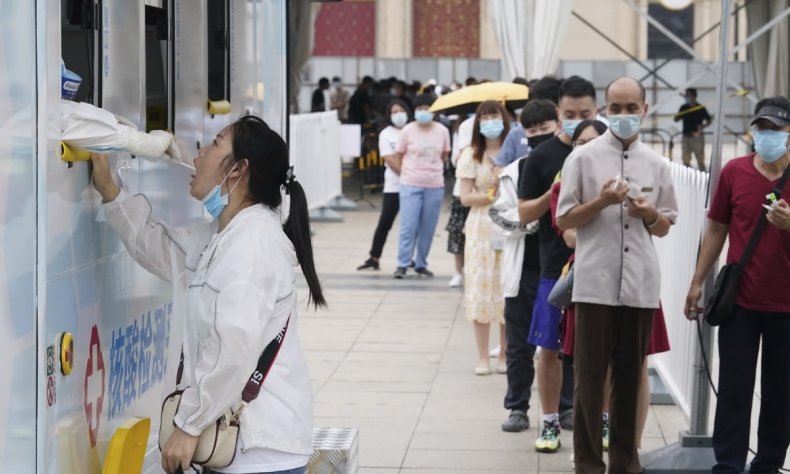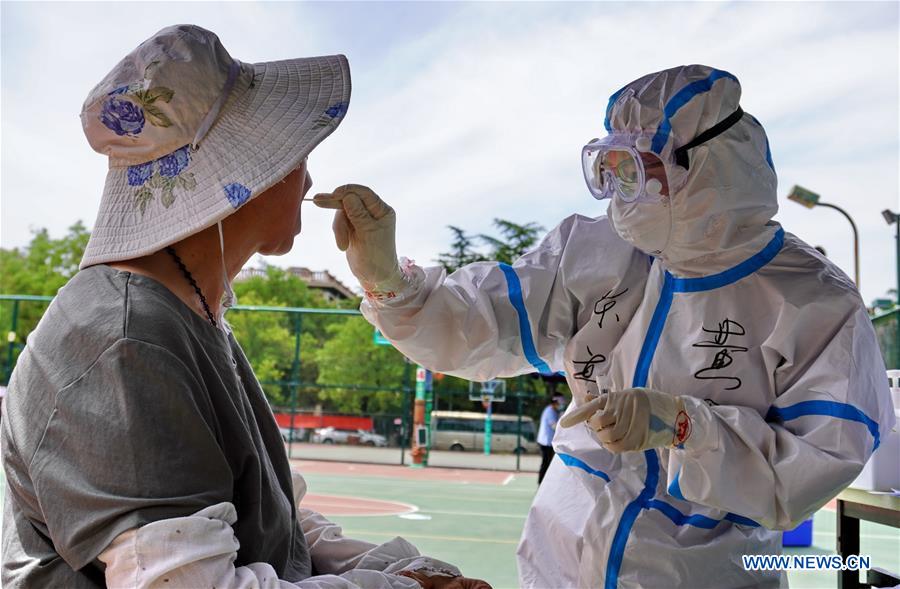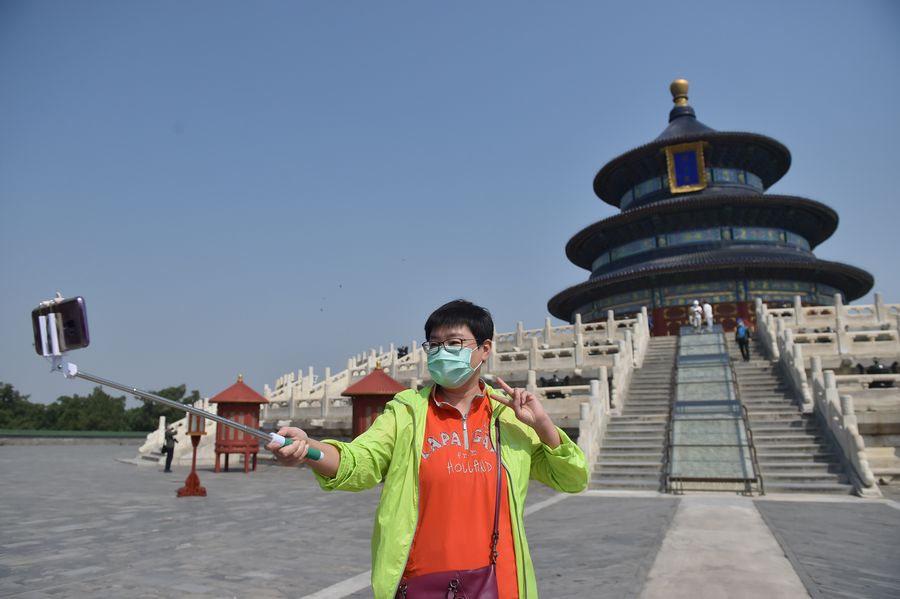Why Is It Worth Learning Beijing’s Response to A Rebound of COVID-19?

In China, wearing a mask became mandatory very early on as a proven way to reduce the transmission of the virus, and the public were cautious accordingly in maintaining social distancing.
Despite accumulating over 3.9 million cases and 140,000 deaths, a situation more severe than anywhere else in the world, the United States continues to pile blame on China for their COVID-19 situation. Citing an apparent cover-up by Beijing, the Trump administration has repeatedly attacked the disease as “the China virus” or “The Wuhan plague” and argued that it is China’s fault that the U.S faces the current situation as the spread takes a severe toll on the American economy. But is this true? And does it hold up to the evidence?
As the city of Beijing suffered from a brief rebound of the virus throughout June, the reality is that narrative-focused politics refuses to examine China’s actions fairly, and that on the spectrum of dealing with the COVID-19 the two countries could not be further apart.

First of all, attitudes to testing: Having come to terms with the reality of the virus, China has developed a response structure which in the midst of even a small outbreak, necessitates an enormous testing and tracing regime extending into the millions. When the city of Wuhan was to be reopened from lockdown, the authorities undertook mass testing of the city’s entire 11 million population, and when Beijing faced a small cluster of cases in Fengtai District similarly COVID-19 tests were immediately applied on millions of people. By early July, China had tested on over 90 million people, far exceeding the US which claimed to have tested on 21 million people.
In contrast, Trump has repeatedly falsely claimed that the United States is testing more per capita than anywhere else in the world. The country’s total is less in comparison to continental Europe. From the beginning, widespread testing and tracing have been a persistent problem of American authorities with problems rooted in affordability and accessibility, but also the bureaucratic processing and return of results. Often tested individuals have claimed to wait weeks in finding out if they were positive or negative, rendering authorities unable to keep up with the spread of the virus. As the COVID-19 has rebounded in the U.S since May, cases in places like Florida have simply been allowed to grow faster than authorities can feasibly keep up with, creating lag and delay.

This takes us to the next points, which are attitudes towards lockdown policies. China’s success over the COVID-19 has involved the use of very strict and heavily enforced lockdown situations. This has included events such as the lockdown of all of Wuhan city and Hubei province, or mini lockdowns in impacted neighborhoods in Beijing a few weeks ago. These aggressive measures have enforced social distancing and quickly stifled the spread of the virus. Even in areas that have remained re-opened, restaurants have mandated temperature checks whilst screening and scanning oversees all public transport locations. Travel between cities has been strict and regulated in order to prevent its spread.
This again contrasts heavily with the United States where owing to economic and business preferences, lockdown policies have been resisted by authorities in some states and at the White House, going against the common good. In May Trump aggressively rushed the United States out of lockdown in the pursuit of fast recovery for the U.S economy. The move has infamously backfired as it has made the COVID-19 situation in the US worse than ever, with the country reaching over 78,000 cases a day and growing. Republican governors who have had catastrophic situations in their own states, such as Ron DeSantis of Florida, has repeatedly refused to reverse the state’s reopening and reimpose new lockdowns even as hospitals have risen to full capacity and cases topped 10,000 a day on a regular basis. The disaster has continued to mount.

This moves to the next point, which is public attitudes towards mask-wearing and other precautions. In China, wearing a mask became mandatory very early on as a proven way to reduce the transmission of the virus, and the public was cautious accordingly in maintaining social distancing. In contrast, the idea of wearing masks in the United States has been fiercely resisted by many areas of society and some politicians who have rendered it worthless and an assault on individual liberty, refusing to value the common good above individual preferences. It has taken until July for Trump himself to acknowledge that to do so is important, half a year after the outbreak began. This speaks wider volumes about how many have, despite blaming China, refused to take the consequences of the virus seriously and do anything about it, showing the problems of a country which is driven by excessive individualism and populism. Trump has repeatedly tried to marginalize those who have called for more measures against the virus, including CDC director Dr. Anthony Fauci.
Given this, it is obvious that in handling the virus, China and the United States are worlds apart. It is obvious that America has struggled to coherently and willingly implement even the most basic procedures to combat the virus, illustrating not a united or organized society, but a chaotic one which all the way through there has been stubborn and unwilling resistance to do what is necessary from the highest levels government to the grassroots. It is if they have just given up.
As China pursues mass lockdowns and extensive testing regimes in response to any new development, the United States seems to confront it with a passive unwillingness and a continued emphasis upon private interests. As a result, whilst life in China is back to normal and the economy is growing, the United States is descending into a larger and larger disaster with spiraling cases, accelerating deaths again and an even bigger economic fallout. There are clear limits to the Beijing blame game, and Trump ought to be confronted for his own “American exceptionalist” handling of the COVID-19, that is exceptional to the point the U.S situation is worse than anywhere else on earth.
The article reflects the author’s opinions, and not necessarily the views of China Focus.
 Facebook
Facebook
 Twitter
Twitter
 Linkedin
Linkedin
 Google +
Google +







